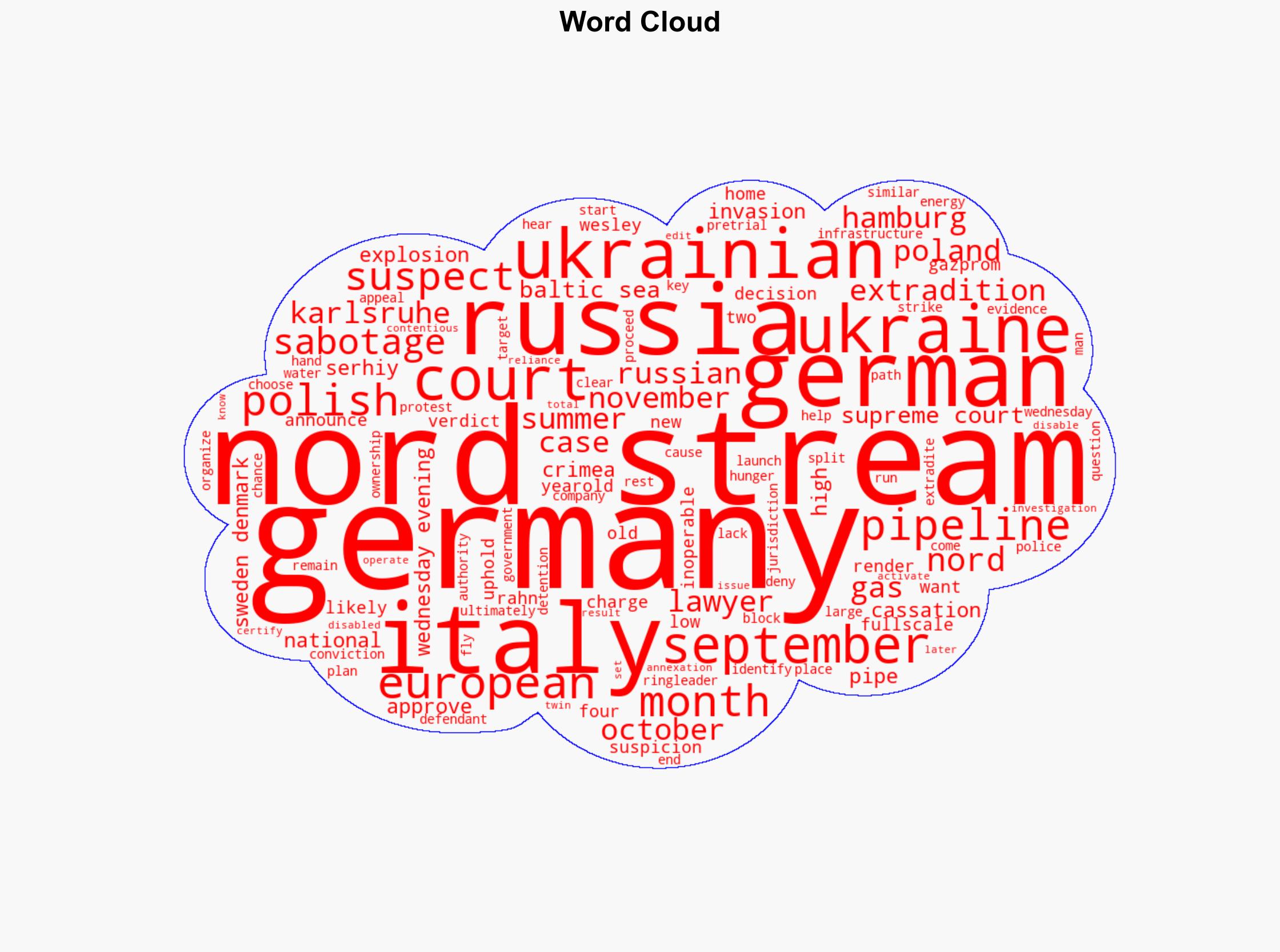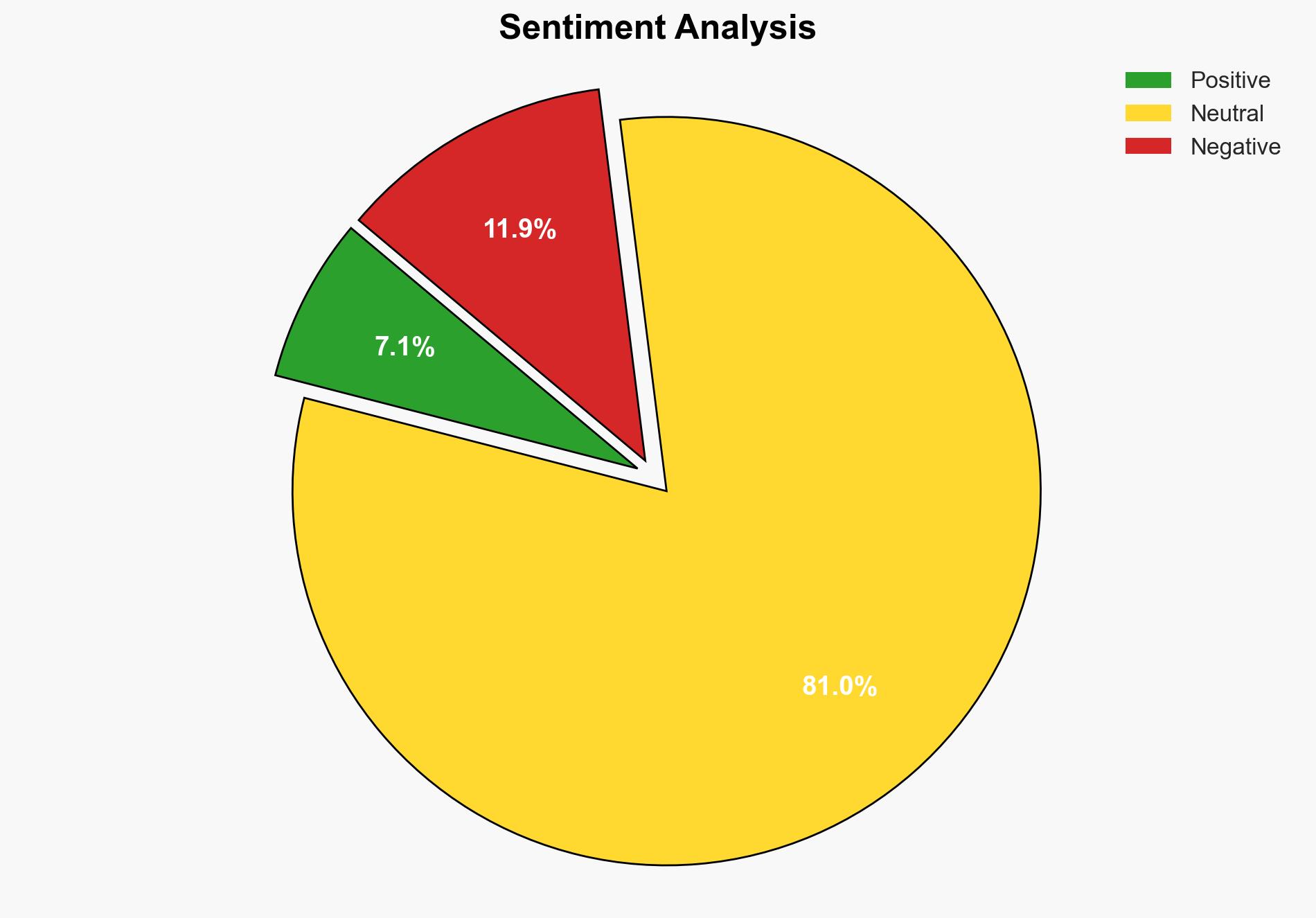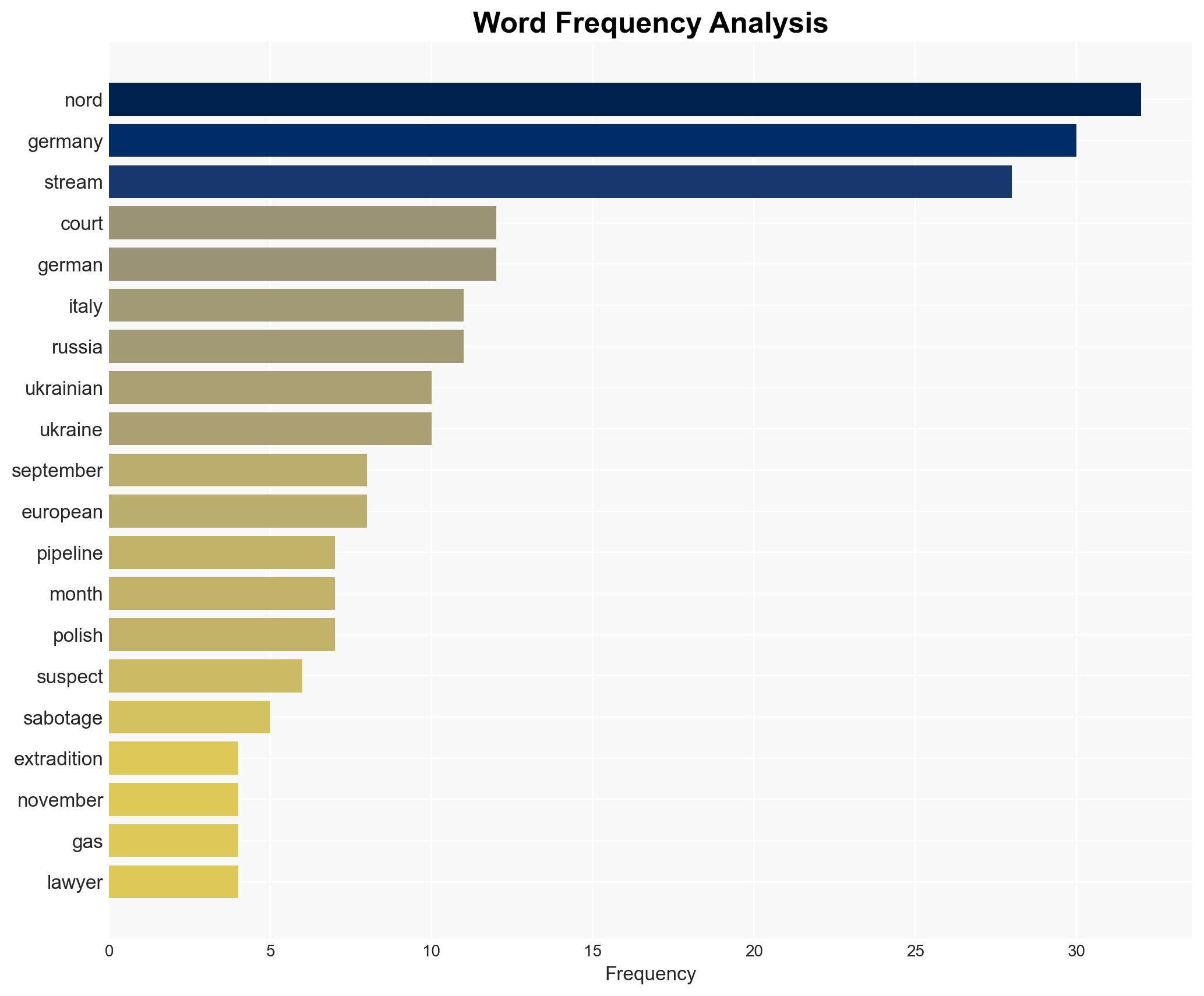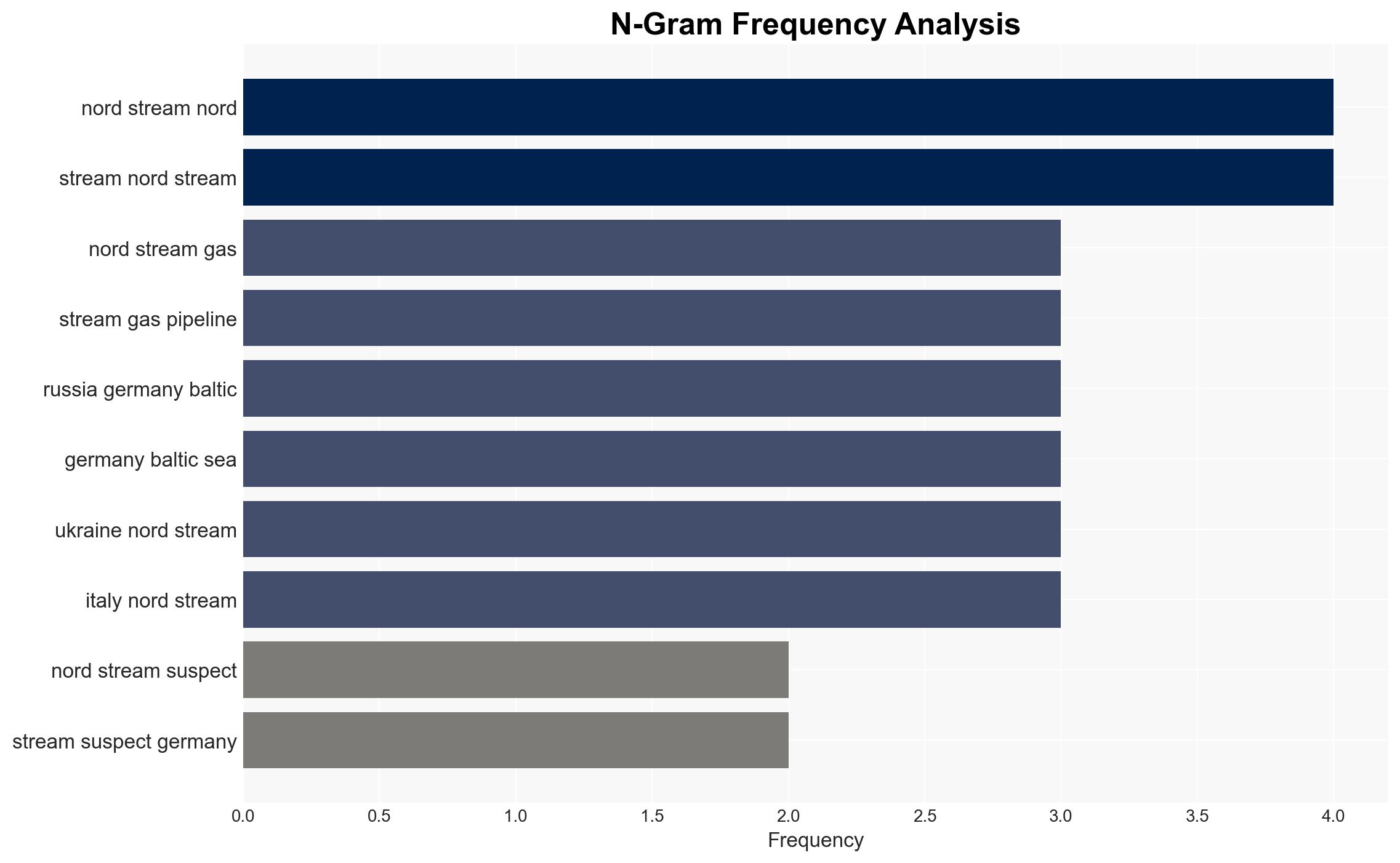Italy approves Nord Stream suspect’s Germany extradition – DW (English)
Published on: 2025-11-19
AI-powered OSINT brief from verified open sources. Automated NLP signal extraction with human verification. See our Methodology and Why WorldWideWatchers.
Intelligence Report:
1. BLUF (Bottom Line Up Front)
The extradition of a Ukrainian national suspected of sabotaging the Nord Stream pipeline to Germany is likely to heighten tensions between European nations and Russia, while also impacting EU-Ukraine relations. With a moderate confidence level, the hypothesis that the suspect’s extradition will lead to increased diplomatic strain is most supported. It is recommended that diplomatic channels be reinforced to manage potential fallout and that intelligence-sharing mechanisms be enhanced to monitor further developments.
2. Competing Hypotheses
Hypothesis 1: The extradition will lead to increased diplomatic tensions between Germany and Ukraine, potentially straining EU-Ukraine relations.
Hypothesis 2: The extradition will have minimal impact on diplomatic relations, as legal proceedings will be seen as separate from political considerations.
Hypothesis 1 is more likely due to the high-profile nature of the case and existing geopolitical tensions involving Russia, Ukraine, and EU countries. The involvement of multiple nations in the investigation and the potential for perceived bias or injustice could exacerbate diplomatic relations.
3. Key Assumptions and Red Flags
Assumptions: It is assumed that the legal process will be transparent and free from political influence. It is also assumed that the extradition will be perceived as a legal rather than a political action.
Red Flags: The suspect’s hunger strike and denial of charges could be used as leverage in political narratives. The involvement of multiple jurisdictions (Italy, Germany, Poland) introduces complexity and potential for jurisdictional disputes.
4. Implications and Strategic Risks
The extradition could lead to increased political tensions between the EU and Ukraine, potentially impacting ongoing negotiations and cooperation. There is a risk of cyber retaliation or increased informational warfare from state or non-state actors sympathetic to the suspect. Economically, any further disruptions to energy infrastructure could exacerbate existing energy security concerns in Europe.
5. Recommendations and Outlook
- Enhance diplomatic engagement with Ukraine to clarify the legal basis of the extradition and mitigate potential diplomatic fallout.
- Strengthen intelligence-sharing frameworks among EU nations to monitor and preempt potential retaliatory actions.
- Best-case scenario: The extradition proceeds smoothly, with minimal diplomatic impact and successful legal resolution.
- Worst-case scenario: Diplomatic relations deteriorate, leading to broader geopolitical tensions and potential disruptions in EU-Ukraine cooperation.
- Most-likely scenario: Some diplomatic strain occurs, but it is managed through diplomatic channels, with limited long-term impact.
6. Key Individuals and Entities
Serhiy K. – Ukrainian national, suspect in Nord Stream sabotage case.
Italy’s Supreme Court of Cassation – Judicial body approving extradition.
German authorities – Receiving jurisdiction for the suspect.
7. Thematic Tags
Structured Analytic Techniques Applied
- Cognitive Bias Stress Test: Expose and correct potential biases in assessments through red-teaming and structured challenge.
- Bayesian Scenario Modeling: Use probabilistic forecasting for conflict trajectories or escalation likelihood.
- Network Influence Mapping: Map relationships between state and non-state actors for impact estimation.
Explore more:
National Security Threats Briefs ·
Daily Summary ·
Support us





